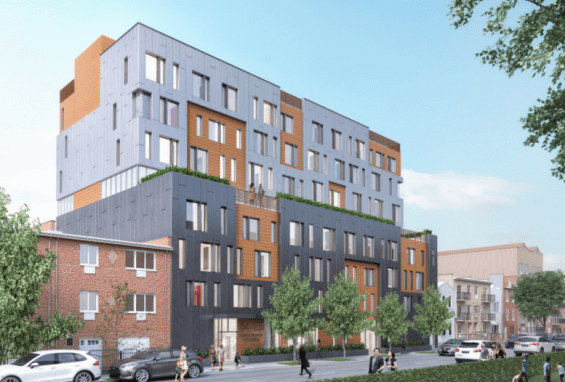
Oct. 28, 2016 By Hannah Wulkan
Officials broke ground on a new affordable senior housing development in Corona earlier this week, marking the first new affordable housing in the neighborhood in 30 years.
The HANAC Senior Residence Center is slated to open in the spring of 2018 at 54-17 101st Street, with 68 units for seniors and social services located inside.
The $35 million project was funded in part by a $12.8 million Low-Income Housing Tax Credit subsidy.
The new building is part the Willets Point benefits package that Council Member Julissa Ferreras-Copeland negotiated in 2013, promising to completely overhaul the neighborhood and bring in new residential and business developments.
“In short, the Corona Senior Residence is a model development that will set the standard for future efforts to provide affordable and supportive senior housing in a cost-effective and environmentally-friendly manner,” said Queens Borough President Melinda Katz.
Named for the Hellenic American Neighborhood Action Committee, a non-profit group that helps seniors find affordable housing, the new residence will provide a full time Social Service Coordinator to manage a supportive services program. HANAC will also implement a health-screening program for residents, and there will also be a preschool constructed by the SCA in the building.
“Too many seniors pay too much of their income in rent, and we must work to address this problem across our district and city,” said Ferreras-Copeland. “That was my vision while negotiating the Willets Point agreement, and it continues to drive my work today. This development will be a model, with energy efficient design and staff to provide seniors with the support services they need for decades to come. Our community deserves nothing less.”
There are approximately 200,000 low-income seniors on waiting lists for developments like this throughout the city, with about 34,000 in Queens.
“In a borough where 31 percent of residents pay 50 percent or more of their income on rent, more work is needed to keep Queens affordable, especially for the most vulnerable populations,” added John P. Kaiteris, Executive Director, HANAC.
3 Comments







Ugly building
I’m interested in this housing for 2018 in Corona ! I’m not sure how to go about !? So please provide me with the accurate info . I’m not computer savvy so if you provide me with info of what is the exact age requirement is .Thank you Eva Laszlo
Good morning
I an interesting to have one of this apartment